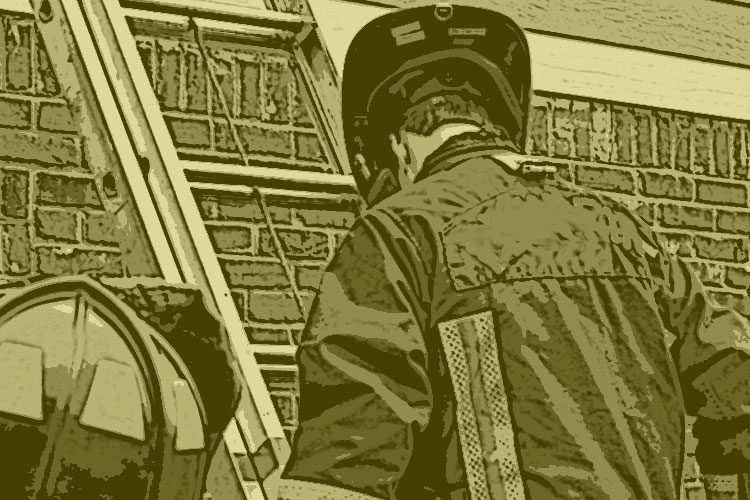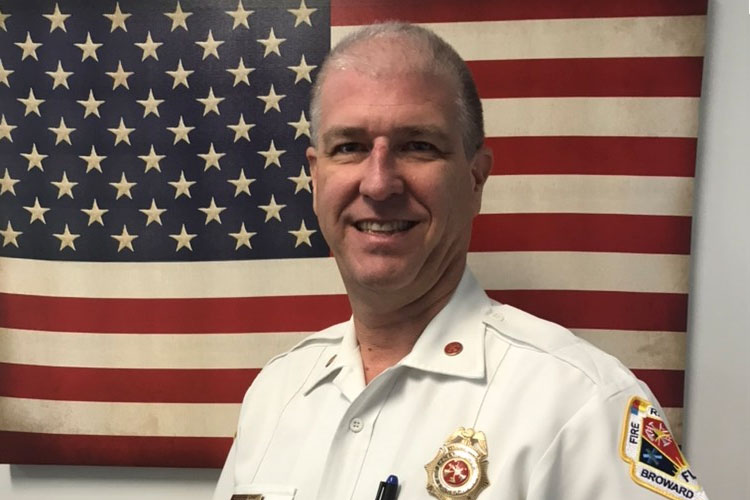

By Todd LeDuc
We need to raise the bar when it comes to mental health support in the fire service. I just spent time with colleagues and friends presenting the National Surviving the Fire Service workshop to the State of Oregon fire service, listening to colleagues recount what we know about the behavioral impacts of a fire service career. The air travel back gave me the opportunity to read a report by Dr. Alana Brunacini, the granddaughter of the late fire service icon Alan “Bruno” Brunacini, on behavioral health screenings for firefighters about a decade ago. This further reinforced that occupational exposures from both the fire service and emergency medical services can and do have a profound impact on our nation’s million-plus first responders. The question is “WAHUT”—what actions have you taken within your departments to address the behavioral health of all first responders, their families, and retirees?
The resources that are out there are plentiful. You do not need not recreate the wheel to provide robust safety nets to address first responder mental wellness. Although we know that behavior stressors can elevate rates of depression, anxiety, alcohol abuse, and substance use, we also know sleep cycle disorders, post-traumatic stress disorder (PTSD), and suicide also appear to be elevated it first responder communities. As firefighters, we have not often been educated at the earlies stages of our service as to the potential toll the job may take on our behavioral health. We also are not necessarily enlightened as to the interplay that behavioral stressors and diseases play in wreaking havoc on our physical health. We also have not been taught how to address these through positive coping mechanisms. Instead we often drift our way to often unhealthy yet time-tested crutches such as binge comfort eating, dependency on alcohol and other substances, and social isolationisms and withdrawal.
Many of the country’s 30,000+ organized fire departments are at varying and different stages of their journey on creating behavioral health wellness support programs. Certainly, awareness and education of the members of what impacts repeated exposure to traumas may play on their mental wellness and the introduction of healthy coping mechanisms is a god prescription to start with. Positive coping mechanisms may be mindfulness training, meditation, peer support opportunities to “decompress” and share experiences, and focusing on healthy activities such as exercise. While in Oregon, one department shared their new practice of letting crews self-identify calls that they found to be stressful, traumatic, or otherwise challenging to their inherent coping mechanisms. Battalion chiefs would then be notified to follow up with them sooner rather than later as well as during their off time to assess ongoing emotional coping and stress and provide support.
The development of formalized peer support teams entails letting department members to identify who within their ranks they trust as confidants and training those members a “peer support team members.” The International Association of Firefighters (IAFF) has excellent peer support training and resources, as does the National Fallen Firefighters Foundation (NFFF) – First Responder Center of Excellence (I am honored to serve on their board of advisors.) If you don’t have such a program, establish one. If you have a peer support resources, enhance them with additional training and in-service opportunities. Reach out and visit other departments who have robust peer support programs. Listen and learn from their experiences.
Ensure that your department has regular and confidential screening for behavioral health. There are evidence-based tools that identify depression, alcohol dependency, sleep disorders, stress/anxiety disorders, and PTSD so that interventions and treatment can be offered. These, of course, should be with the goal of early detection and treatment in mind—no different that detecting cancer or heart disease and managing it.
Identify clinicians in your local area who are willing and able to treat your firefighters’ behavioral health. They must also be willing and able to learn the fire service culture, spend time learning about your department and its members, and recognize the unique occupational exposures that firefighters and EMS personnel face and the impacts that occur from those repeated exposures. These successful clinician relationships are not built overnight but take hard work and time. If your department has not established this relationship, it’s a critical piece to focus on and work to establish.
Finally, make sure your department members know what resources are available and how to access them when they are needed in a confidential manner, especially if in a behavioral health crisis. Finally, education is key. Training and ongoing training of all department members in all aspects of behavioral wellness is necessary. This not only places a priority on their mental well-being but keeps the interwoven complexities between physical and emotional well-being at the forefront of your members’ continued readiness to effectively serve their communities and fulfill the mission!
 Todd J. LeDuc, MS, CFO, FIFirE, is an executive assistant chief with and a 29-year veteran of Broward County (FL) Fire Rescue, aninternationally accredited career metro department. He has a master’s degree in executive fire service leadership, is a credentialed chief fire officer, and is a Fellow in the Institute of Fire Engineers. LeDuc is a peer reviewer for professional credentialing and agency accreditation. He speaks and publishes articles frequently; serves on numerous editorial and advisory boards; and has conducted more than 50 fire department evaluations, master and strategic plans, and feasibility studies on three continents. He can be reached at tjlbcems@aol.com.
Todd J. LeDuc, MS, CFO, FIFirE, is an executive assistant chief with and a 29-year veteran of Broward County (FL) Fire Rescue, aninternationally accredited career metro department. He has a master’s degree in executive fire service leadership, is a credentialed chief fire officer, and is a Fellow in the Institute of Fire Engineers. LeDuc is a peer reviewer for professional credentialing and agency accreditation. He speaks and publishes articles frequently; serves on numerous editorial and advisory boards; and has conducted more than 50 fire department evaluations, master and strategic plans, and feasibility studies on three continents. He can be reached at tjlbcems@aol.com.
MORE
Excellence Requires Commitment to Action and Empowerment
Three Chicken Dinners and Fire Service Physicals

